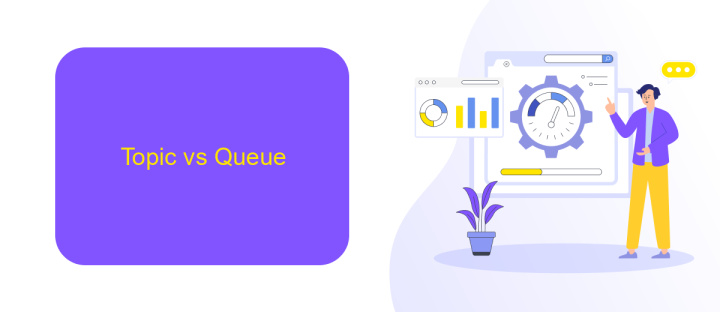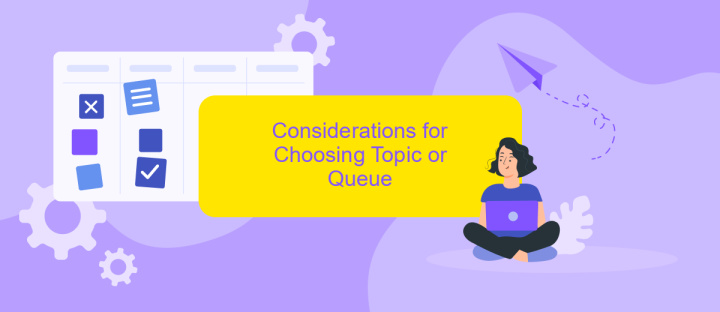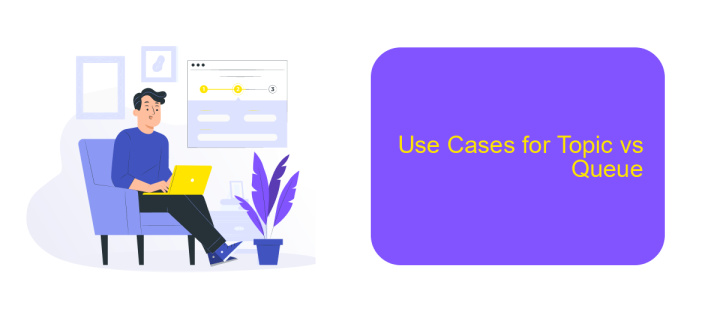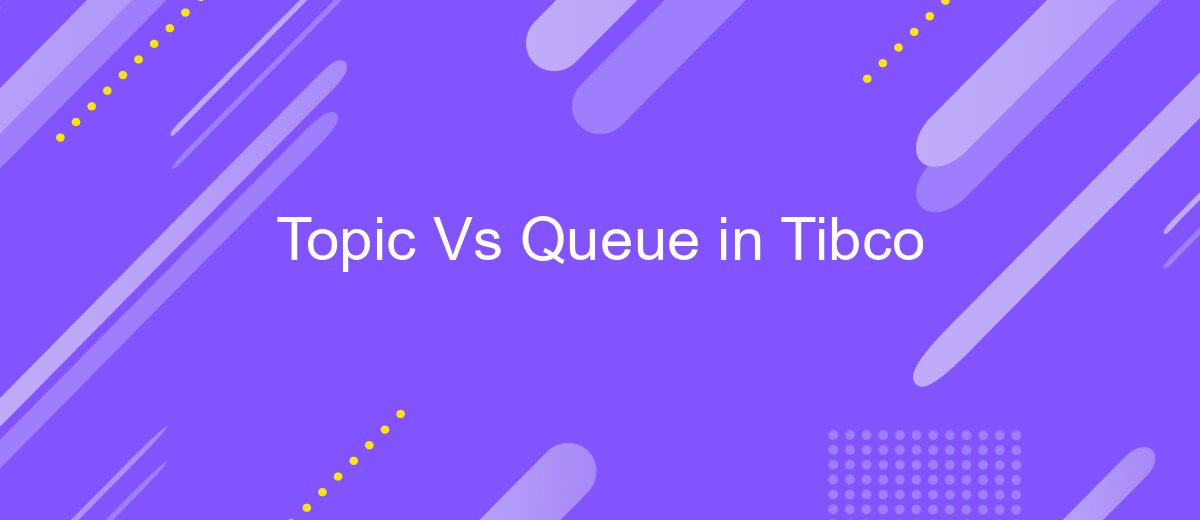Topic Vs Queue in Tibco
In the realm of enterprise messaging, understanding the differences between Topics and Queues in TIBCO is crucial for optimizing communication patterns. While both serve to facilitate message distribution, they operate in fundamentally distinct ways. This article delves into the core functionalities, use cases, and benefits of Topics versus Queues, providing insights to help you choose the right mechanism for your business needs.
Introduction
In the realm of enterprise messaging, understanding the differences between topics and queues in Tibco is crucial for efficient message handling. Tibco, a leader in integration and analytics, provides robust solutions for message-oriented middleware, enabling seamless communication between distributed applications.
- Topics: Topics are used for publish/subscribe messaging models where messages are broadcast to multiple subscribers.
- Queues: Queues, on the other hand, follow the point-to-point messaging model, ensuring that messages are delivered to a single consumer.
Choosing the right messaging model can significantly impact the performance and scalability of your integration solutions. Tools like ApiX-Drive can further enhance your integration capabilities by providing user-friendly interfaces and automation options for setting up and managing your Tibco integrations. Understanding when to use topics versus queues will help you optimize your messaging infrastructure for better reliability and efficiency.
Topic vs Queue

In Tibco, Topics and Queues serve distinct purposes in message-oriented middleware. A Topic is used for publish-subscribe messaging, where messages are broadcasted to multiple subscribers. This enables real-time data distribution to many consumers simultaneously. For instance, when a stock price update is published to a Topic, all subscribed clients receive the update at once. This is ideal for scenarios requiring high scalability and real-time data dissemination.
Conversely, a Queue is designed for point-to-point messaging, ensuring that each message is delivered to a single consumer. This guarantees message processing reliability and order, as each message is consumed by only one receiver. Queues are suitable for tasks requiring sequential processing, such as order processing systems. For seamless integration of such messaging systems, services like ApiX-Drive can be utilized to automate workflows and ensure efficient data synchronization between various applications, enhancing overall operational efficiency.
Considerations for Choosing Topic or Queue

When deciding between using a Topic or a Queue in Tibco, it's essential to consider the specific requirements and constraints of your messaging system. Both options offer distinct advantages and are suited to different use cases.
- Message Distribution: Use Topics if you need to broadcast messages to multiple subscribers. Queues are better for point-to-point communication where each message is consumed by a single receiver.
- Scalability: Topics are ideal for scaling out to multiple consumers who need the same data. Queues are more suited for load balancing tasks among multiple workers.
- Durability: Consider the durability requirements of your messages. Queues often provide more robust message persistence options compared to Topics.
- Integration: If you are integrating with multiple systems, consider using a service like ApiX-Drive to streamline and automate your workflows, ensuring seamless data transfer between your applications.
By carefully evaluating these factors, you can make an informed decision that aligns with your system's architecture and business needs. Whether you choose a Topic or a Queue, ensuring that it fits your specific use case will optimize your messaging infrastructure.
Use Cases for Topic vs Queue

When choosing between Topic and Queue in Tibco, it's essential to understand their specific use cases. Topics are ideal for scenarios where messages need to be broadcasted to multiple subscribers. This is particularly useful in real-time data feeds, such as stock market updates or live sports scores, where multiple systems need to receive the same information simultaneously.
On the other hand, Queues are better suited for point-to-point communication, where each message is processed by a single consumer. This is beneficial in task distribution systems, such as order processing or job scheduling, ensuring that each task is handled by one worker, thus avoiding duplication of work.
- Topics: Real-time data feeds, notifications, and broadcasting events.
- Queues: Task distribution, order processing, and job scheduling.
Integrating these messaging models with services like ApiX-Drive can streamline the setup and management of your data flows. ApiX-Drive offers seamless integration capabilities, enabling efficient message routing and processing without extensive manual configuration. By leveraging such services, businesses can optimize their communication infrastructure, ensuring reliable and scalable message delivery.
Conclusion
In conclusion, both Topic and Queue in Tibco serve distinct purposes and are essential for different messaging scenarios. Topics are ideal for broadcasting messages to multiple subscribers, ensuring that all interested parties receive the same information simultaneously. On the other hand, Queues are designed for point-to-point communication, where each message is processed by a single consumer, making them suitable for tasks that require reliable and sequential processing.
Choosing between Topic and Queue depends on the specific requirements of your integration architecture. For those looking to simplify and automate these integrations, services like ApiX-Drive can be invaluable. ApiX-Drive offers a user-friendly platform that facilitates seamless integration between various applications, ensuring efficient data flow and communication. By leveraging such tools, organizations can enhance their operational efficiency and streamline their messaging systems within Tibco.
FAQ
What is the primary difference between a Topic and a Queue in Tibco?
When should I use a Topic over a Queue?
Can a message in a Queue be consumed by multiple receivers?
How can I automate the integration of Tibco Topics and Queues with other services?
Is it possible to ensure message ordering in a Tibco Queue?
Time is the most valuable resource for business today. Almost half of it is wasted on routine tasks. Your employees are constantly forced to perform monotonous tasks that are difficult to classify as important and specialized. You can leave everything as it is by hiring additional employees, or you can automate most of the business processes using the ApiX-Drive online connector to get rid of unnecessary time and money expenses once and for all. The choice is yours!

